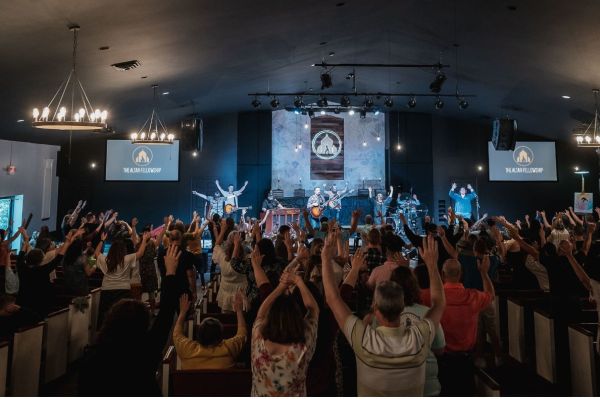Justice Department Joins Case against Jail's Bibles-Only Policy
The U.S. Department of Justice joined in on a 2010 lawsuit on Tuesday against a South Carolina jail that bars prisoners from receiving any reading materials other than the Bible.
Justice Department officials filed a motion, contending that the Berkeley County Detention Center’s mail policy is unconstitutional.
South Carolina U.S. Attorney Bill Nettles said the government decided to intervene because of the constitutional issues at stake, as reported by The Associated Press.
The lawsuit was brought on by monthly journal Prison Legal News in October 2010. Sheriff Wayne DeWitt and several other employees at the detention center were named in the legal suit.
The American Civil Liberties Union, which filed the suit, charges that since 2008, copies of Prison Legal News and books sent to prisoners at the detention center have been returned to the sender or simply discarded. Among the books was Protecting Your Health & Safety, which explains inmates' legal rights regarding health and safety.
The defendants have been accused of violating the First and Fourteenth Amendments.
The Berkeley County Detention Center’s written policy on inmate mail reads: “The only mail allowed to be received by inmates are letters only. No packages are accepted at the Detention Center. The only exception to this is pictures. Inmates may receive three (3) pictures but they cannot be Polaroid.”
According to the lawsuit, First Sergeant K. Habersham sent an email last summer to Paul Wright, editor of Prison Legal News, stating that detainees are allowed to order from a publisher and receive by mail a soft-cover Bible. But no other books, magazines, or newspapers are allowed.
David Fathi, director of the ACLU National Prison Project, said of the detention center's actions, "The policy in place at the Berkeley County Detention Center is nothing short of censorship, and there is no justification for shutting detainees off from the outside world in such a draconian way."
The decision by the Justice Department to intervene in the case came as a shock to DeWitt’s attorney who told local television station WISTV10 that she will be meeting with Nettles. Nettles’ Public Affairs Specialist, Beth Drake, confirmed that the meetings will take place but noted that such meetings are standard procedure during this kind of legal proceeding.
The ACLU praised the DOJ’s decision to become a plaintiff in the case. “The fact that the Justice Department has chosen to intervene in this case should send a clear signal to jail officials that systematically denying detainees access to books, magazines and newspapers is unconstitutional,” Fathi said a statement.
ACLU spokesman William Matthews made clear that the lawsuit does not take issue with the distribution of Bibles in the jail. He pointed out that the jail’s mail policy also bars access to Christian periodicals that are not Bibles as well as texts from other religions and organizations such as Prison Legal News.
As part of its National Prison Project, the ACLU joined forces with Prison Fellowship and the Becket Fund for Religious Liberty in 2009 to petition the Rappahannock Regional Jail in Stafford, Va., to stop censoring biblical passages from letters written to detainees. The jail agreed to change its policy the following month.
Matthews told The Christian Post that this latest case is just as “representative of the ACLU’s commitment to protect religious freedom” as the 2009 case.






















